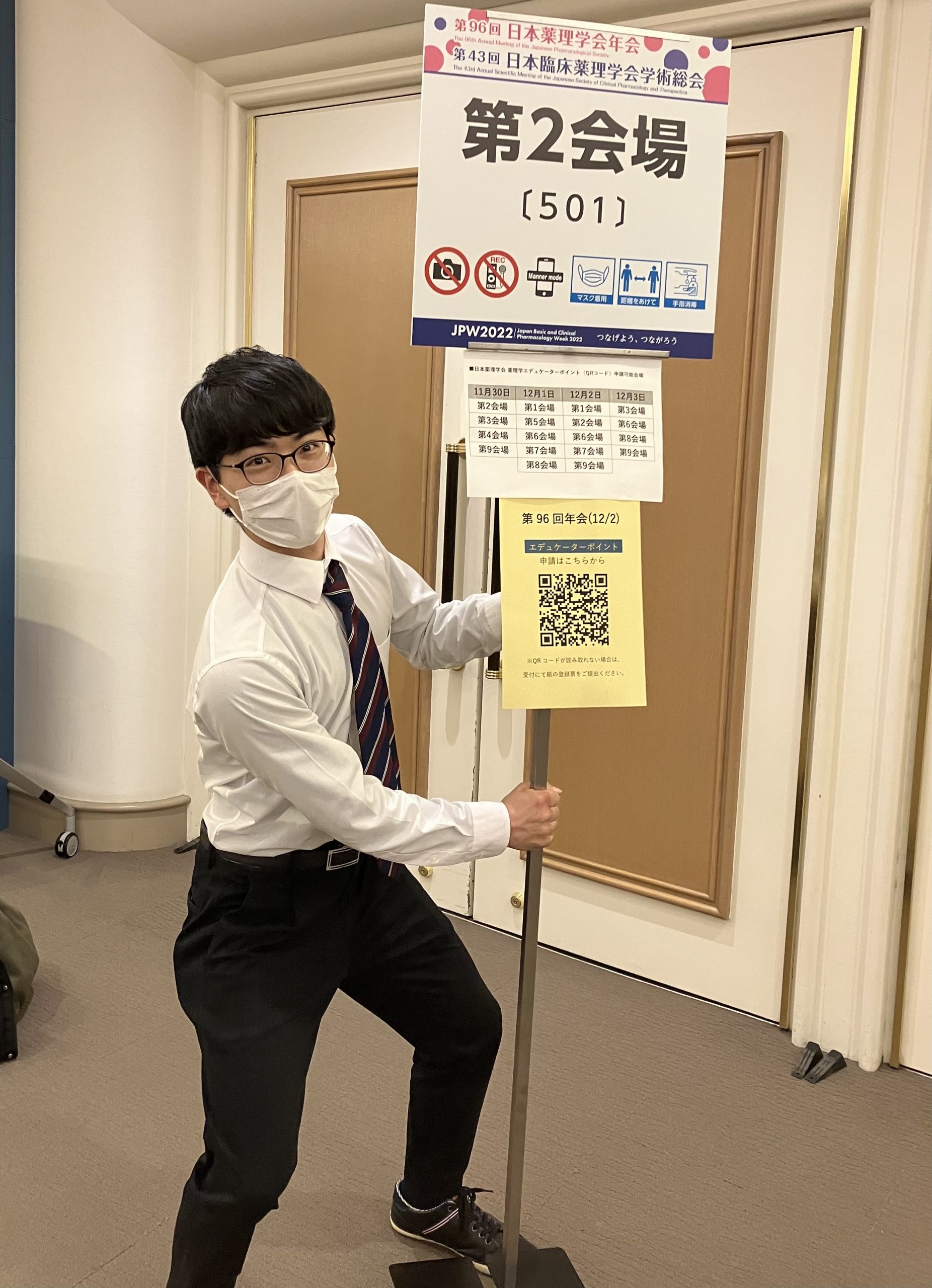第96回日本薬理学会年会参加報告 薬理学教室 鈴木秀明
この度はライフサイエンスコースのサポートを受けパシフィコ横浜にて開催された第96回日本薬理学会年会で口頭発表させていただきました。現地対面開催の学会であり多数の先生方に直接自身の発表を聞いていただくことができ、また、多様な演題に触れることができた貴重な機会でした。
以下に発表の抄録を示す。
Astrocytes become reactive upon brain injury or inflammation, altering their molecular profile, morphology, and function, particularly the expression of receptors involved in neuron-glia and glia-glia signaling. P2Y1 receptors are overexpressed in many neurological diseases in which neuronal hyperexcitability is observed, such as epilepsy and Alzheimer’s disease. We have previously shown that elevated P2Y1 receptor expression in astrocytes in the hippocampal CA1 region causes neuronal hyperexcitability by enhancing neuron-astrocyte communication. However, the mechanism by which astrocyte P2Y1 receptor signaling is enhanced during pathological conditions remains unclear. We focused on the fact that microglia are also activated during pathological conditions and attempted to elucidate the mechanism of enhanced astrocyte P2Y1 receptor signaling by depleting microglia with a CSF1 receptor antagonist, PLX5622. The results are summarized in the following two points: 1) microglia depletion increased P2ry1 gene expression in astrocytes and enhanced Ca2+ signaling by P2Y1 receptor agonists. This indicates that microglia may be inhibitory regulators of P2Y1 receptor expression in astrocytes. 2) Microglia depletion prolonged the residual time of extracellularly pipetted ATP. This suggests that microglia, which are rich in extracellular ATPase, rapidly degrade ATP and inhibitory regulate the amount of extracellular ATP. These results suggest that microglia may inhibitory regulate neuron-astrocyte signaling via ATP/P2Y1 signaling in two ways.


